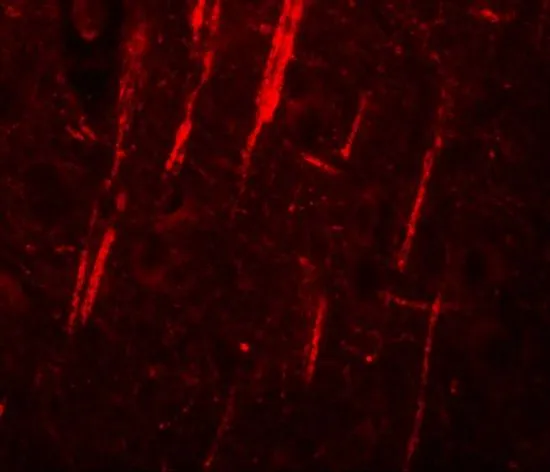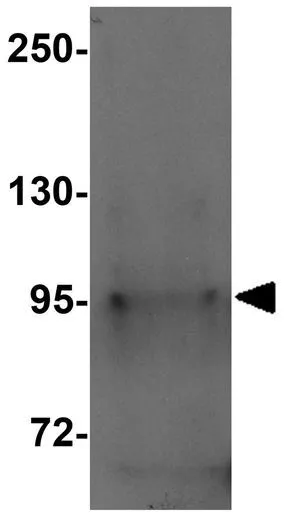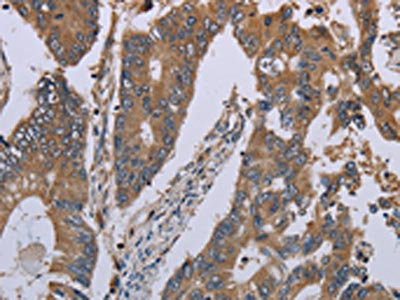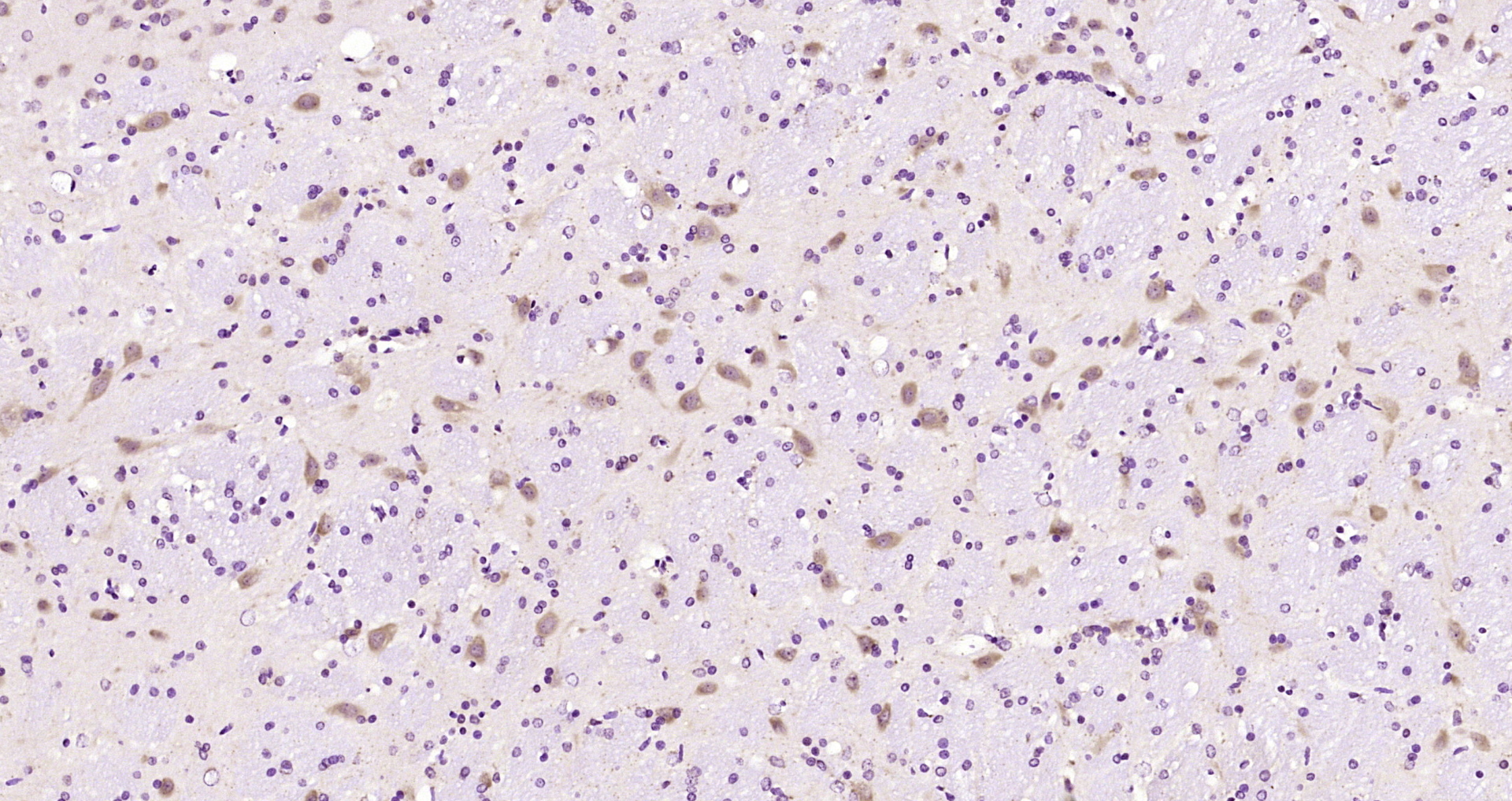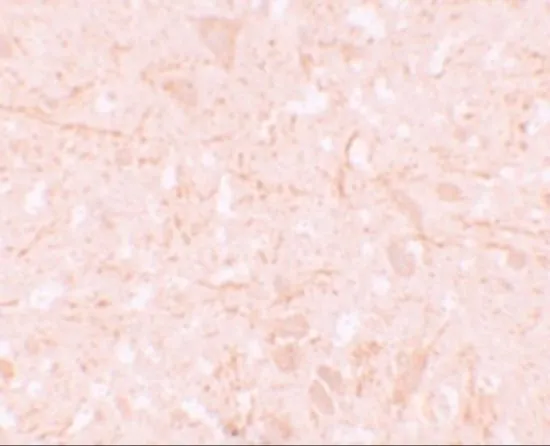
IHC-P analysis of human brain tissue using GTX31418 NLRP12 antibody. Working concentration : 5 μg/ml
NLRP12 antibody
GTX31418
ApplicationsWestern Blot, ELISA, ImmunoHistoChemistry, ImmunoHistoChemistry Paraffin
Product group Antibodies
ReactivityHuman, Mouse, Rat
TargetNLRP12
Overview
- SupplierGeneTex
- Product NameNLRP12 antibody
- Delivery Days Customer9
- Application Supplier NoteWB: 1 microg/mL. IHC-P: 5 microg/mL. *Optimal dilutions/concentrations should be determined by the researcher.Not tested in other applications.
- ApplicationsWestern Blot, ELISA, ImmunoHistoChemistry, ImmunoHistoChemistry Paraffin
- CertificationResearch Use Only
- ClonalityPolyclonal
- Concentration1 mg/ml
- ConjugateUnconjugated
- Gene ID91662
- Target nameNLRP12
- Target descriptionNLR family pyrin domain containing 12
- Target synonymsCLR19.3, FCAS2, NALP12, PAN6, PYPAF7, RNO, RNO2, NACHT, LRR and PYD domains-containing protein 12, PYRIN-containing APAF1-like protein 7, monarch 1, nucleotide-binding oligomerization domain, leucine rich repeat and pyrin domain containing 12, regulated by nitric oxide
- HostRabbit
- IsotypeIgG
- Protein IDP59046
- Protein NameNACHT, LRR and PYD domains-containing protein 12
- Scientific DescriptionThis gene encodes a member of the CATERPILLER family of cytoplasmic proteins. The encoded protein, which contains an N-terminal pyrin domain, a NACHT domain, a NACHT-associated domain, and a C-terminus leucine-rich repeat region, functions as an attenuating factor of inflammation by suppressing inflammatory responses in activated monocytes. Mutations in this gene cause familial cold autoinflammatory syndrome type 2. Alternative splicing results in multiple transcript variants. [provided by RefSeq, Mar 2013]
- ReactivityHuman, Mouse, Rat
- Storage Instruction-20°C or -80°C,2°C to 8°C
- UNSPSC41116161

